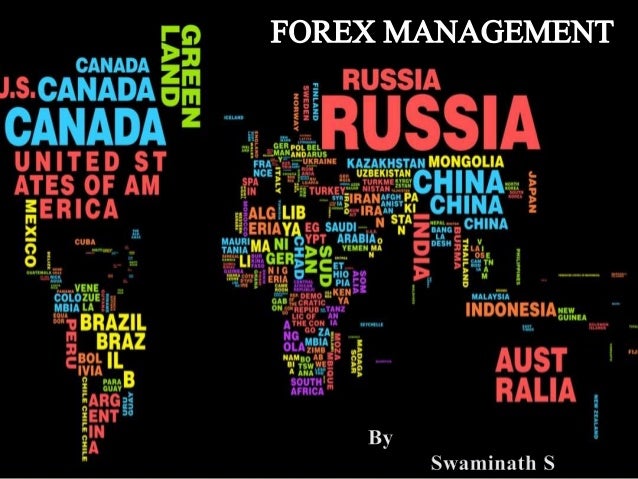- China's State Administration Of Foreign Exchange (SAFE) Definition
- Foreign Exchange Management
- Types of Foreign Exchange Risk
- The Public
The bank can handle this trade for its customer and simultaneously neutralize the exchange rate risk in the trade by selling borrowed British pound sterling spot against dollars. The bank will lend the dollars for three months until they are needed to deliver against the dollars it has sold forward.
China's State Administration Of Foreign Exchange (SAFE) Definition
The British pounds received will be used to liquidate the sterling loan. Question 8. Answer : The trader must think the Canadian dollar is going to appreciate against the U. Question 9. What Is Triangular Arbitrage? Answer : Triangular arbitrage is the process of trading out of the U.
The purpose is to earn an arbitrage profit via trading from the second to the third currency when the direct exchange between the two is not in alignment with the cross exchange rate. Most, but not all, currency transactions go through the dollar. Certain banks specialize in making a direct market between non-dollar currencies, pricing at a narrower bid-ask spread than the cross-rate spread. Nevertheless, the implied cross-rate bid-ask quotations impose a discipline on the non-dollar market makers. If their direct quotes are not consistent with the cross exchange rates, a triangular arbitrage profit is possible.
Question Sf Has Gone From Sf1. Answer : The value of the dollar in Swiss francs has gone up from about 1. Therefore, the dollar has appreciated relative to the Swiss franc, and the dollars needed by Americans to purchase Swiss goods have decreased. What Does Trading Forex Mean? Answer : Trading forex means making transactions that involve currencies in the foreign exchange market. Alternatively, an investor could sell the same pair, based on the belief the common currency will depreciate against the U.
In addition to making basic purchase and sale transactions, traders have many ways to take positions on currency pairs, including spot contracts, forwards, derivatives and contracts for difference. Why Should I Trade Forex? Answer : There are several reasons investors might opt to trade currencies instead of making use of other opportunities. While certain assets may be more difficult to buy and sell, traders interested in currencies will likely find substantial opportunities.
Liquidity risk can occur around major news events if liquidity providers seek to limit their exposure to market volatility. However, it is important to keep in mind that risk is inherent to investment. While using leverage to make larger trades can amplify returns, it can also amplify the size of losses.
By taking a more international approach, traders might diversify more successfully or potentially achieve higher returns by putting their money to work in areas that have greater potential. Once again, risk is inherent to investment, so no returns are guaranteed and investors must conduct their due diligence on regions. How Risky Is Forex Trading? Answer : Like any form of investment, forex trading involves risk. The currency markets can experience sharp fluctuations, just like the stock, bond or commodity markets. Liquidity risk can increase around major news events.
It is also worth noting that there are some unscrupulous brokers out there. As a result, investors can benefit from performing substantial due diligence on any company they might work with. For example, you could trade the euro without owning it by buying or selling options that involve the currency. In addition, purchasing spot contracts or forward contracts involving your currency of choice would also provide exposure. Answer : When making trades, big banks employ professionals who may have significant education and experience.
As a result, you can benefit greatly by doing your best to be prepared. When evaluating currency pairs, some traders use fundamental analysis, which involves analyzing economic fundamentals in different countries. When using this technique, investors might look at GDP, inflation and unemployment in the two nations involved in an exchange rate. Another resource traders can utilize is technical analysis, which involves reading charts to get a better sense of the market sentiment surrounding a specific currency pair.
Some traders might use both fundamental and technical analysis before making any transactions. By doing so, they might be able to increase their chances of competing successfully with big banks. Trading forex on margin carries a risk of losses in excess of your deposited funds and may not be suitable for all investors. Answer : Forex Trading is not centralized on an exchange, as with the stock and futures markets.
The Forex market is considered an Over the Counter OTC or 'Interbank' market, due to the fact that transactions are conducted between two counterparts over the telephone or via an electronic network. Answer : The Forex market is called an 'Interbank' market due to the fact that historically it has been dominated by banks, including central banks, commercial banks, and investment banks.
However, the percentage of other market participants is rapidly growing, and now includes large multinational corporations, global money managers, registered dealers, international money brokers, futures and options traders, and private speculators. Answer : A true hour market, Forex trading begins each day in Sydney, and moves around the globe as the business day begins in each financial center, first to Tokyo, then London, and New York.
Unlike any other financial market, investors can respond to currency fluctuations caused by economic, social and political events at the time they occur - day or night.
Is Forex Trading Expensive? Answer : No. Most online Forex brokers allow customers to execute margin trades at up to leverage. However, it is important to remember that while this type of leverage allows investors to maximize their profit potential, the potential for loss is equally great. A more pragmatic margin trade for someone new to the Forex markets would be but ultimately depends on the investor's appetite for risk.
- The Definition of Foreign Exchange Management | Bizfluent.
- China's State Administration Of Foreign Exchange (SAFE).
- audusd chart-live forex;
Answer : Margin is essentially collateral for a position. It allows traders to take on leveraged positions with a fraction of the equity necessary to fund the trade. Answer : In trading parlance, a long position is one in which a trader buys a currency at one price and aims to sell it later at a higher price.
- incentive stock options vs nonstatutory stock options.
- butterfly options strategy wiki.
- Foreign Exchange Rates and International Finance.
In this scenario, the investor benefits from a rising market. A short position is one in which the trader sells a currency in anticipation that it will depreciate. In this scenario, the investor benefits from a declining market. However, it is important to remember that every Forex position requires an investor to go long in one currency and short the other.

Answer : Please check our extensive Glossary for detailed definitions of all Forex related terms. Answer : Intraday positions are all positions which are opened and closed anytime during normal trading. Overnight positions are positions that are still on at the end of normal trading hours, which are usually rolled over by your Forex broker based on the currencies interest rate differentials to the next day's price.
Foreign Exchange Management
How Are Currency Prices Determined? Answer : Currency prices are affected by a variety of economic and political conditions, most importantly interest rates, inflation and political stability. Moreover, governments sometimes participate in the Forex market to influence the value of their currencies, either by flooding the market with their domestic currency in an attempt to lower the price, or conversely buying in order to raise the price. This is known as Central Bank intervention. Any of these factors, as well as large market orders, can cause high volatility in currency prices.
However, the size and volume of the Forex market makes it impossible for any one entity to "drive" the market for any length of time.
Types of Foreign Exchange Risk
How Do I Manage Risk? Answer : The most common risk management tools in Forex trading are the limit order and the stop loss order. A limit order places restriction on the maximum price to be paid or the minimum price to be received.
- India Code: Foreign Exchange Management Act, .
- START YOUR BUSINESS.
- Tax Laws & Rules > Acts > Foreign Exchange Management Act, .
A stop loss order ensures a particular position is automatically liquidated at a predetermined price in order to limit potential losses should the market move against an investor's position. The liquidity of the Forex market ensures that limit order and stop loss orders can be easily executed.
The Public
Answer : Currency traders make decisions using both technical factors and economic fundamentals. Technical traders use charts, trend lines, support and resistance levels, and numerous patterns and mathematical analyses to identify trading opportunities, whereas fundamentalists predict price movements by interpreting a wide variety of economic information, including news, government-issued indicators and reports, and even rumor.
The most dramatic price movements however, occur when unexpected events happen. The event can range from a Central Bank raising domestic interest rates to the outcome of a political election or even an act of war. Nonetheless, more often it is the expectation of an event that drives the market rather than the event itself. How Often Are Trades Made? Answer : Market conditions dictate trading activity on any given day. As a reference, the average small to medium trader might trade as often as 10 times a day.
Most importantly, because most Forex Brokers don't charge commission, traders can take positions as often as necessary without worrying about excessive transaction costs. How Long Are Positions Maintained?
